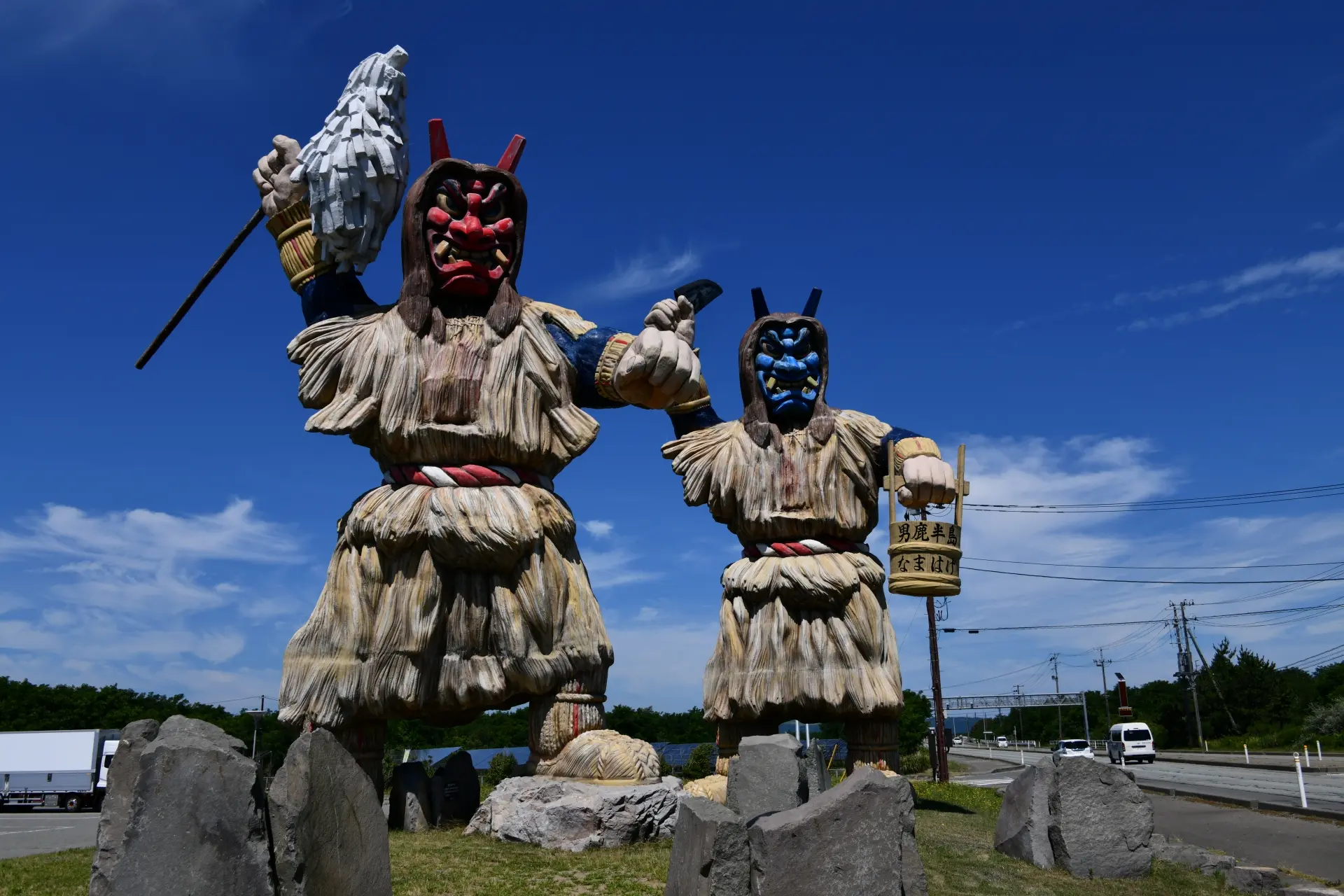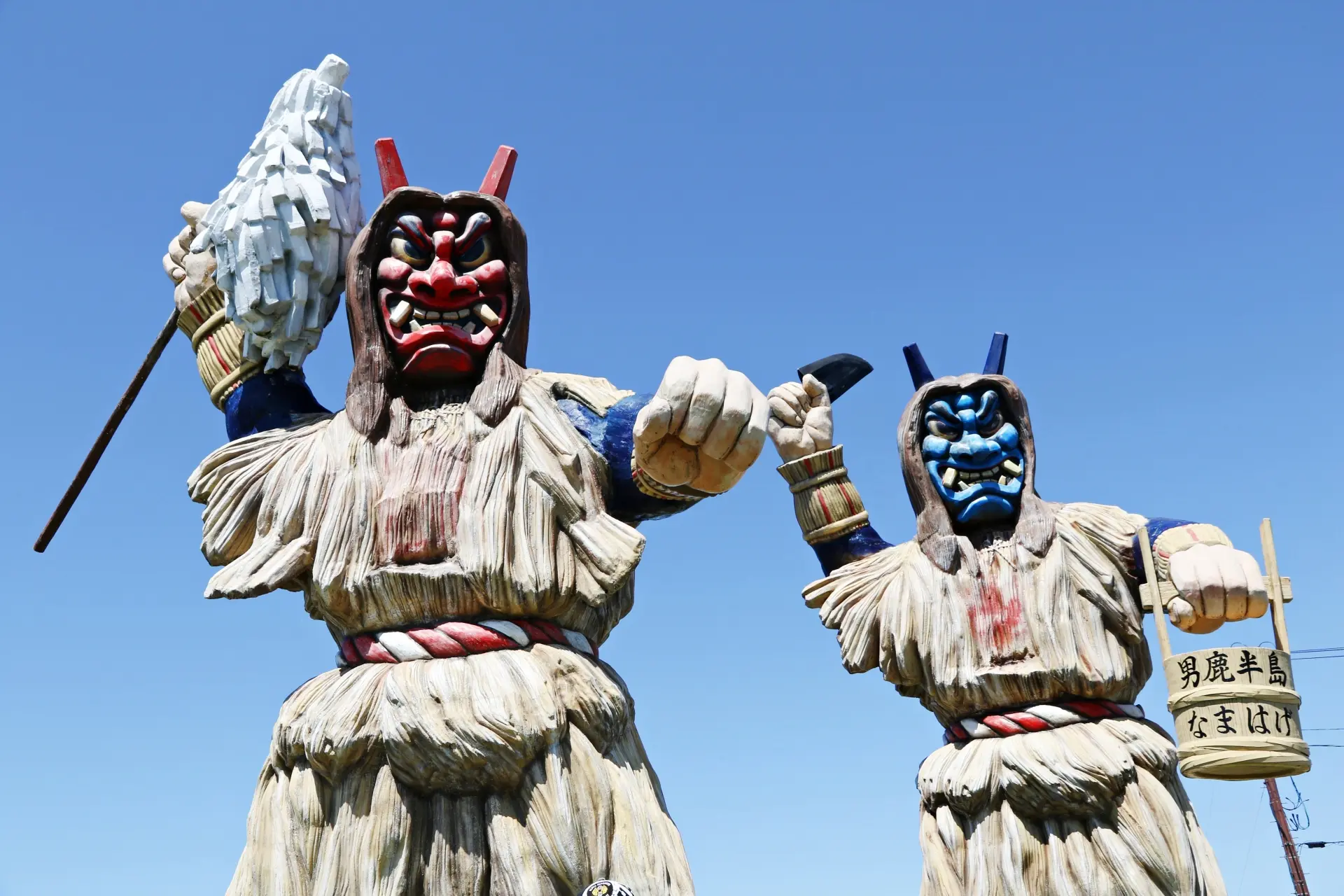+ Explore Other Areas
Tokyo, Osaka, Kyoto, Hokkaido, Fukuoka, Okinawa, Nara, Kanagawa, Aichi, Hiroshima, Yamanashi, Nagano, Oita, Gifu, Ishikawa, Shizuoka, Hyogo, Kumamoto, Miyagi, Wakayama, Nagasaki, Tochigi, Kagawa, Niigata, Kagoshima, Okayama, Chiba, Iwate, Aomori, Shiga, Gunma, Fukushima, Toyama, Ehime, Mie, Ibaraki, Saitama, Yamagata, Saga, Kochi, Tokushima, Miyazaki, Yamaguchi, Akita, Tottori, Fukui, Shimane
Akita, located in the northern Tohoku region, is a treasure trove of stunning natural landscapes, rich traditions, and warm hospitality. Known for its scenic beauty, Akita is home to iconic destinations like Lake Tazawa, the deepest lake in Japan, and the Shirakami-Sanchi UNESCO World Heritage site.
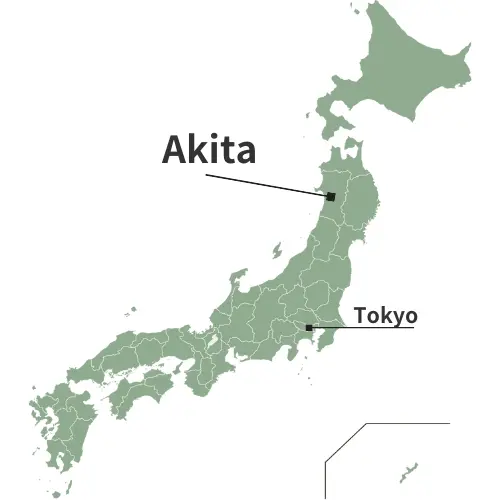
Visitors can also experience the vibrant culture of Akita’s famous festivals, such as the Kanto Matsuri, where massive lantern poles light up the summer night sky.
Akita is equally celebrated for its delicious food, including kiritanpo (grilled rice skewers), fresh seafood, and premium sake. Whether exploring historic samurai districts, relaxing in soothing hot springs, or marveling at seasonal scenery, Akita promises an unforgettable journey into Japan’s past and present.
Top Areas to Explore in Akita
1. Kakunodate
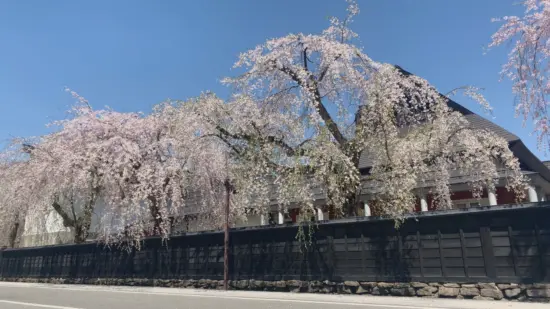
- Why Visit: Known as “Little Kyoto,” Kakunodate is famous for its well-preserved samurai houses and cherry blossoms.
- Highlights:
- Samurai District: Explore historic residences and museums showcasing samurai culture.
- Weeping Cherry Trees: Stunning cherry blossoms in spring along the Hinokinai River.
- Kakunodate Festival: Experience this lively autumn celebration with traditional floats.
2. Lake Tazawa
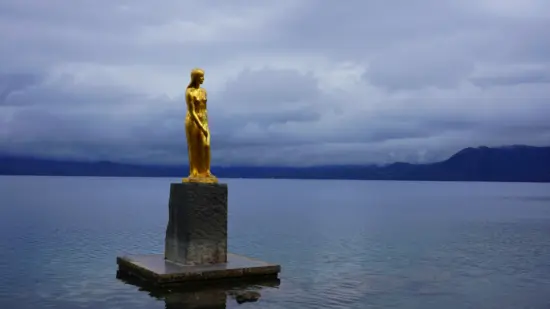
- Why Visit: The deepest lake in Japan, offering breathtaking views and outdoor activities.
- Highlights:
- Tatsuko Statue: A golden statue symbolizing eternal beauty, located by the lakeshore.
- Scenic Boat Rides: Enjoy panoramic views of the lake from the water.
- Hiking Trails: Explore nearby forests and enjoy serene nature walks.
3. Oga Peninsula
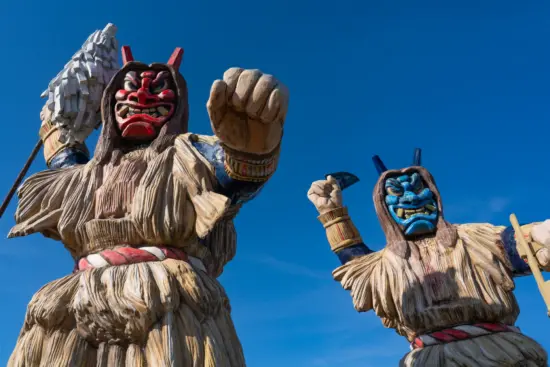
- Why Visit: A rugged coastal area known for its Namahage folklore and natural beauty.
- Highlights:
- Namahage Museum: Learn about the local Namahage tradition and its cultural significance.
- Godzilla Rock: A natural rock formation resembling the famous monster.
- Hot Springs: Relax in coastal onsen with ocean views.
4. Shirakami-Sanchi
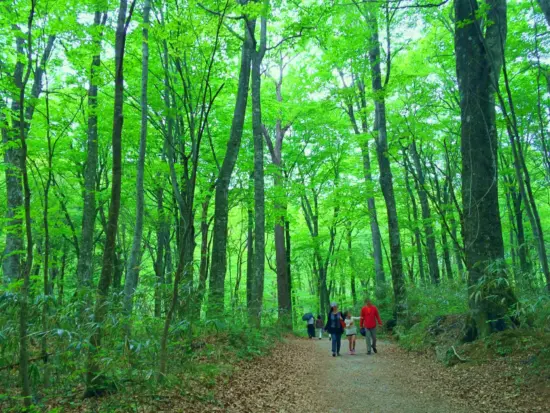
- Why Visit: A UNESCO World Heritage site shared with Aomori, known for its pristine beech forests.
- Highlights:
- Anmon Falls: A series of cascading waterfalls surrounded by lush greenery.
- Hiking Trails: Explore untouched nature and discover rare wildlife.
- Juniko (Twelve Lakes): Picturesque lakes, including the famous Aoike (Blue Pond).
5. Nyuto Onsen
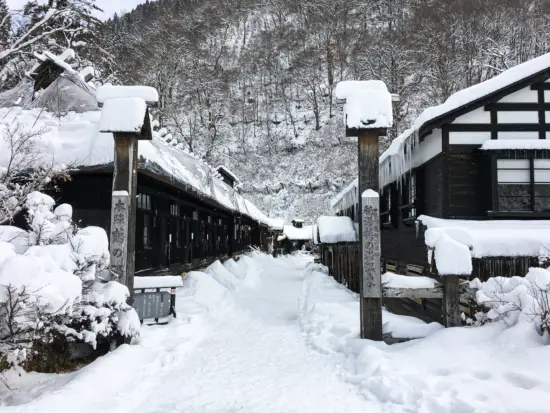
- Why Visit: A collection of traditional hot spring inns nestled in the mountains.
- Highlights:
- Secluded Atmosphere: Perfect for relaxing in nature away from the crowds.
- Open-Air Baths: Enjoy hot springs with scenic views of forests and mountains.
- Historic Inns: Stay in ryokan with authentic Japanese hospitality.
Experience Akita Cuisine

Akita’s culinary scene is as rich as its landscapes. Try kiritanpo, rice skewers grilled over an open flame and often served in a hearty hot pot. Fresh seafood from the Sea of Japan, including sashimi and grilled fish, is a local highlight. Akita is also known for its premium jizake (local sake), brewed using pristine water and high-quality rice.
For dessert, don’t miss Akita’s apple-based sweets, or try inaniwa udon, a thin and silky noodle dish perfect for any season.
Akita: Basic Information
Location
Akita is located in the northern Tohoku region, bordered by the Sea of Japan and surrounded by lush mountains.
Neighboring Areas
Aomori, Iwate, Yamagata
Best Seasons to Visit
- Spring (April to May): Cherry blossoms in Kakunodate and along the Hinokinai River.
- Summer (July to August): Vibrant festivals like the Kanto Matsuri and refreshing coastal breezes.
- Autumn (October to November): Stunning foliage in Shirakami-Sanchi and around Lake Tazawa.
- Winter (December to February): Enjoy serene snow-covered landscapes, hot springs at Nyuto Onsen, and events like the Yokote Kamakura Festival.
How to Get to Akita
By Air
Akita Airport offers domestic flights from Tokyo, Osaka, and Sapporo, with convenient bus access to the city center.
By Shinkansen (Bullet Train)
The Akita Shinkansen connects Tokyo to Akita City in approximately 4 hours, offering scenic views along the way.
By Highway Bus
Highway buses operate between Akita and major cities like Sendai and Tokyo, providing budget-friendly travel options.
Transportation in Akita
Getting around Akita is easy with these transportation options:
- Trains: JR lines connect major cities and tourist destinations like Kakunodate and Oga Peninsula.
- Buses: Local and sightseeing buses serve key attractions, including Nyuto Onsen and Shirakami-Sanchi.
- Car Rental: Ideal for exploring rural areas and scenic routes at your own pace.
- Taxis: Readily available in urban areas and convenient for short trips.

